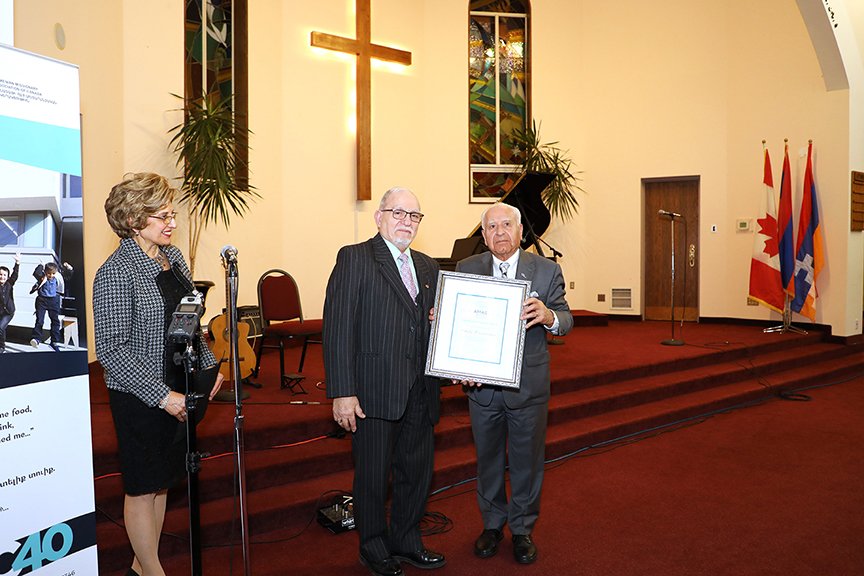
By Harout Nercessian, AMAA representative in Canada
Viktor Karapetyan, AMAA representative of Artsakh, embarked on a three-week speaking tour in March 2024, visiting Montreal and Toronto in Canada and New Jersey in the U.S. Hosted by the Armenian Missionary Association of Canada (AMAC) and the Armenian Missionary Association of America (AMAA), Karapetyan engaged with the local Armenian communities through keynote addresses and informal discussions. He also participated in media interviews and held visits with Armenian dignitaries.
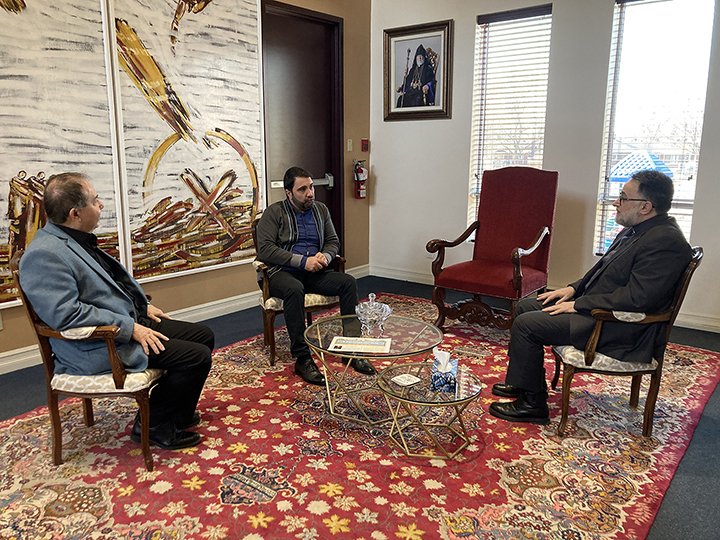
Karapetyan delivered the keynotes at two AMAC-organized “Together with the Armenians of Artsakh” benefit concerts in Toronto and Montreal. These acclaimed events were attended by political and religious dignitaries, representatives of Armenian organizations, journalists and members of the local communities. The events were reported on by two Armenian TV stations and several Armenian newspapers. His effectively delivered and often applause-interrupted keynotes highlighted AMAA’s REVIVE Program, which is dedicated to assisting the displaced people of Artsakh.
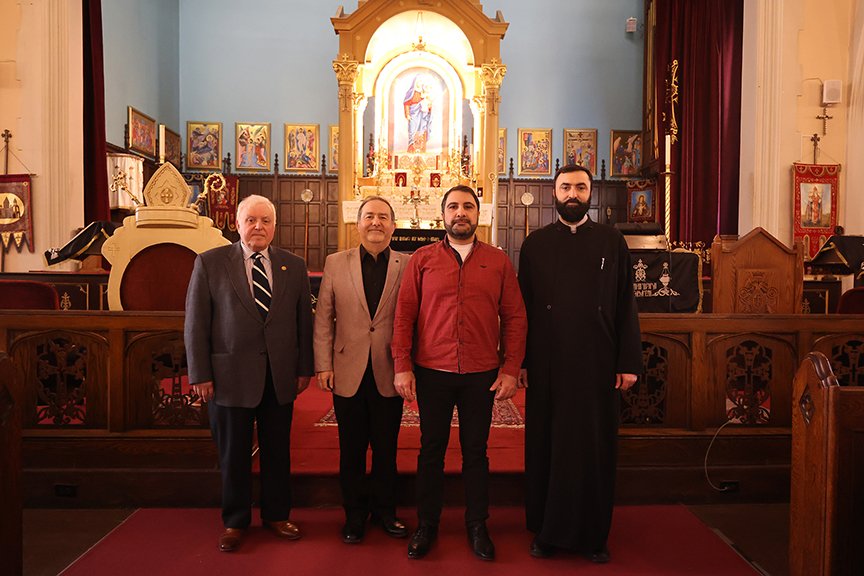
AMAA’s Artsakh representative conducted a series of official visits. His engagements included a meeting with Her Excellency Anahit Harutyunyan, Ambassador Extraordinary and Plenipotentiary of the Republic of Armenia to Canada; representatives of all five Armenian Evangelical churches in Canada and New Jersey; and religious leaders of the Prelacy, Diocese and several Armenian Apostolic and Catholic churches in Canada. The discussions explored the plight and future outlook of Artsakhtsis, including the possibility of a return to their homeland. In response to questions, Karapetyan gave a firsthand account of the events and AMAA’s unwavering support during the 2020 war, the 10-month blockade, the mass exodus and the people’s efforts in rebuilding their shattered lives. “AMAA’s assistance was ceaseless during the hostilities and the blockade. It was the inaugural diaspora humanitarian group to initiate programs in Artsakh in 1995 and remained steadfastly present until the culmination of the mass exodus,” he recounted.
The esteemed visitor delivered sermons, conducted Bible studies and discussed the situation in Artsakh with the congregations of five Armenian Evangelical churches and two Armenian Brotherhood churches in Canada and New Jersey.
Karapetyan visited all five Armenian schools in Canada and New Jersey, talked to students and answered questions. The students asked incisive questions such as, “What was your most painful experience?” “What were you thinking and feeling when you were leaving Artsakh?” “How can we liberate Artsakh?” and “What can we do for the people of Artsakh?” His message to the students was to revive their “Armenian genes,” learn the Armenian language, learn about Artsakh and study well. “I believe in you, and together, if we put our minds to it, we can liberate Artsakh, returning it to its rightful owners,” he told students.
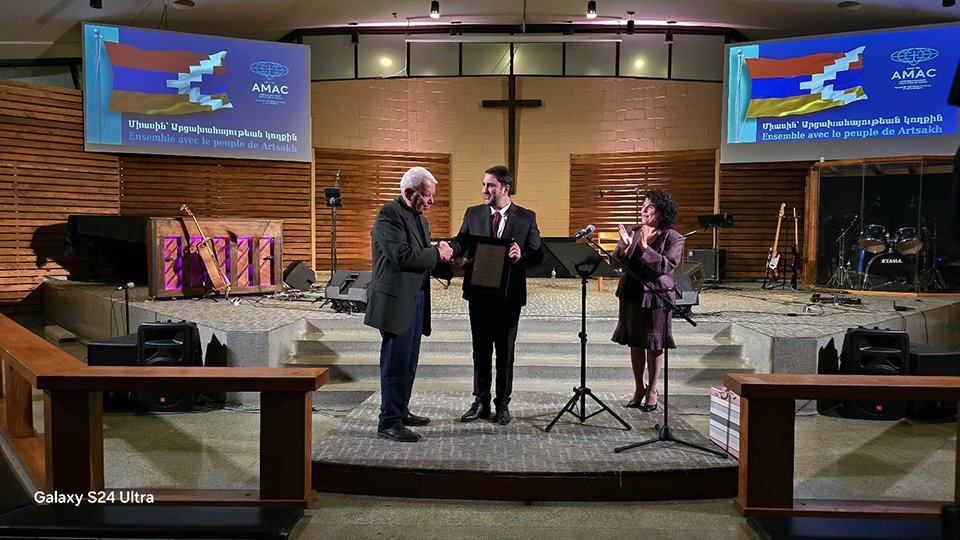
“Mr. Karapetyan’s discourse was profoundly moving; his words were not just spoken but lived—imbued with an indomitable spirit of hope and valor. His light gave us hope that we will liberate Artsakh because it is ours,” said Nareg Shurelian, Sourp Hagop Armenian School student.
The highly sought-after guest addressed members of the Armenian Students’ Association of Seton Hall University and the attendees of an event organized by the St. Leon Apostolic Church in New Jersey. The participants expressed their concern and interest by asking many questions during the Q&A and the reception that followed.
In his presentations, Karapetyan addressed three pivotal themes: the tribulations faced by the Artsakhtsis during and following the 2020 war; AMAA’s response in providing aid to the Artsakhtsis in both Artsakh and Armenia; and a rallying cry to the Armenian diaspora for unity and action.
Karapetyan recounted the relentless and brutal aggression endured by the Armenians of Artsakh throughout the 44-day conflict in 2020. The suffering and despair of the peace-loving Artsakhtsis, who yearn only to dwell in tranquility on their ancestral lands, defy adequate description. He added, “There is not a single Artsakhtsi who has not lost a family member or a close friend.” He highlighted the resilience of the people, who, despite severe shortages of essentials like fuel, water and electricity, found solace and strength on their land. This resilience, passed down through generations, stands as a testament to their unbreakable spirit and divine mandate to safeguard their sacred homeland. He emphasized the enduring Armenian spirit, encapsulated in the millennia-old presence in Artsakh—a land graced with a rich tapestry of cultural heritage and deep Christian faith, as evidenced by its myriad of historic monasteries, churches and khachkars. Yet, these sacred sites and their guardians face existential threats, as the adversary seeks to obliterate the Armenian legacy from these ethnically cleansed territories. Drawing parallels to the 1915 Genocide, Karapetyan lamented the global indifference to the recent 10-month blockade and forced displacement, underscoring the lesson that Armenians must primarily rely on each other for support.
He lauded AMAA’s longstanding commitment to the Artsakhtsis, noting its pioneering role since 1995 in establishing educational, humanitarian and Christian education programs in the region. Despite the war and blockade, the AMAA’s facilities remained operational, providing a beacon of hope even amidst the mass exodus. During the forced exodus, AMAA’s team welcomed the new arrivals, providing them with shelter and emergency aids of basic necessities. For the mid and long-term, AMAA devised the REVIVE Program, which addresses two long-term needs: housing and income.
Karapetyan’s impassioned plea to the students and the wider Armenian community was clear: to excel in their endeavors, to awaken the dormant Armenian spirit and to unite in the mission to reclaim Artsakh. “Never has Artsakh been devoid of Armenian presence throughout its millennia of existence,” he reminded his audiences. He posed a poignant question to all Armenians: “What will history say of our generation? Will it speak of a generation that lost Artsakh or one that liberated the homeland?” His message was unequivocal—Artsakh’s fate is intertwined with the collective will and action of Armenians worldwide.
Audiences were deeply moved by Karapetyan’s hardship-nurtured, profound Christian faith, his fervent love for and loyalty to Artsakh and his unwavering belief that the people of Artsakh will reclaim their ancestral lands and restore the honor of their “paradise on earth.” Karapetyan’s presentations, talks and discussions were highly praised for their authenticity and resonance. Stemming from his personal experiences and deeply held convictions, they provided a genuine insight into the topics at hand.
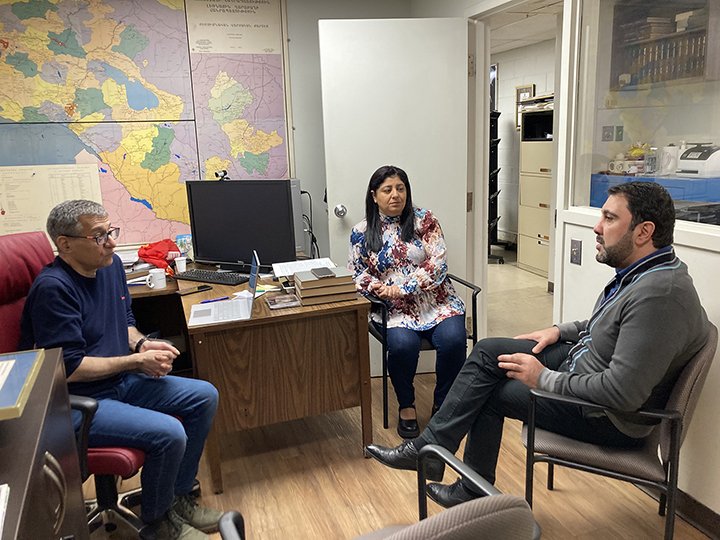
AMAA and AMAC extend their profound gratitude to Karapetyan for his compelling and well-informed presentation of the events in Artsakh both during the 2020 conflict and in its aftermath. His first-hand account provided a deeply insightful and incisive perspective on the current state and future of the Artsakhtsis. We also commend Karapetyan for revitalizing our patriotic fervor for the Artsakhtsis and infusing it with a fresh and dynamic perspective, inspiring a new wave of enthusiasm and commitment.


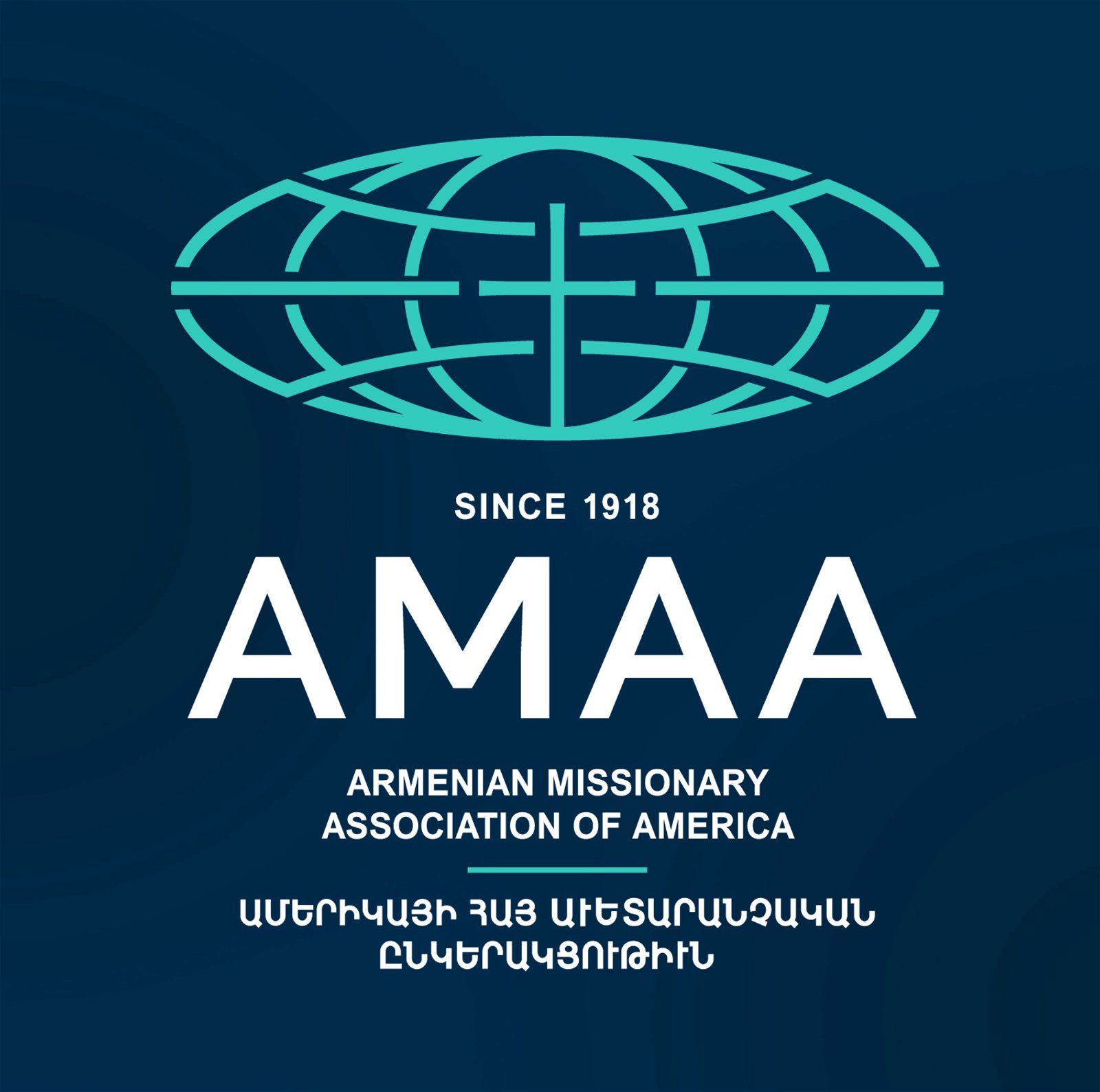
There is a lot of talk about a “return” of Artsakhi refugees to Artsakh, but very little talk about rebuilding the lives of the Artsakhi refugees in Armenia by the diaspora organizations. Instead of dwelling in a fantasy and giving the Artskahi refugees false hopes about returning to Artsakh, they should pool their resources on rebuilding the lives of the Artsakhi refugees in Armenia. Artsakh has been forever lost, and the organizations who live in a fantasy and give false hopes, need to sober up, because Azerbaijan has made its intentions very clear when they brutally ethnically cleansed all Armenians from Artsakh and is now engaging in a cultural Armenian Genocide by destroying all Armenian heritage from churches to cemeteries, and they are preparing to repopulate Artsakh with 140,000 fanatically Armenophobic Azeris. The Artsakhis cannot languish like Palestinian refugees in makeshift shelters for decades in limbo. Armenia is their home now and since Artsakhis are Armenians, they must be integrated to Armenia’s society, given Armenian citizenship, provided with proper homes, jobs and incomes. It is certainly no easy task, but the plight of the Artsakhi refugees is a matter urgency that Armenian diaspora should and can help finance.